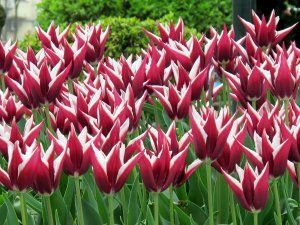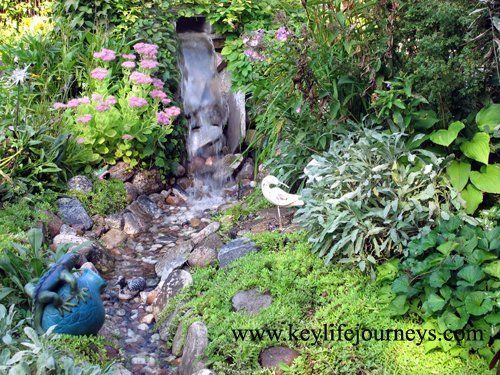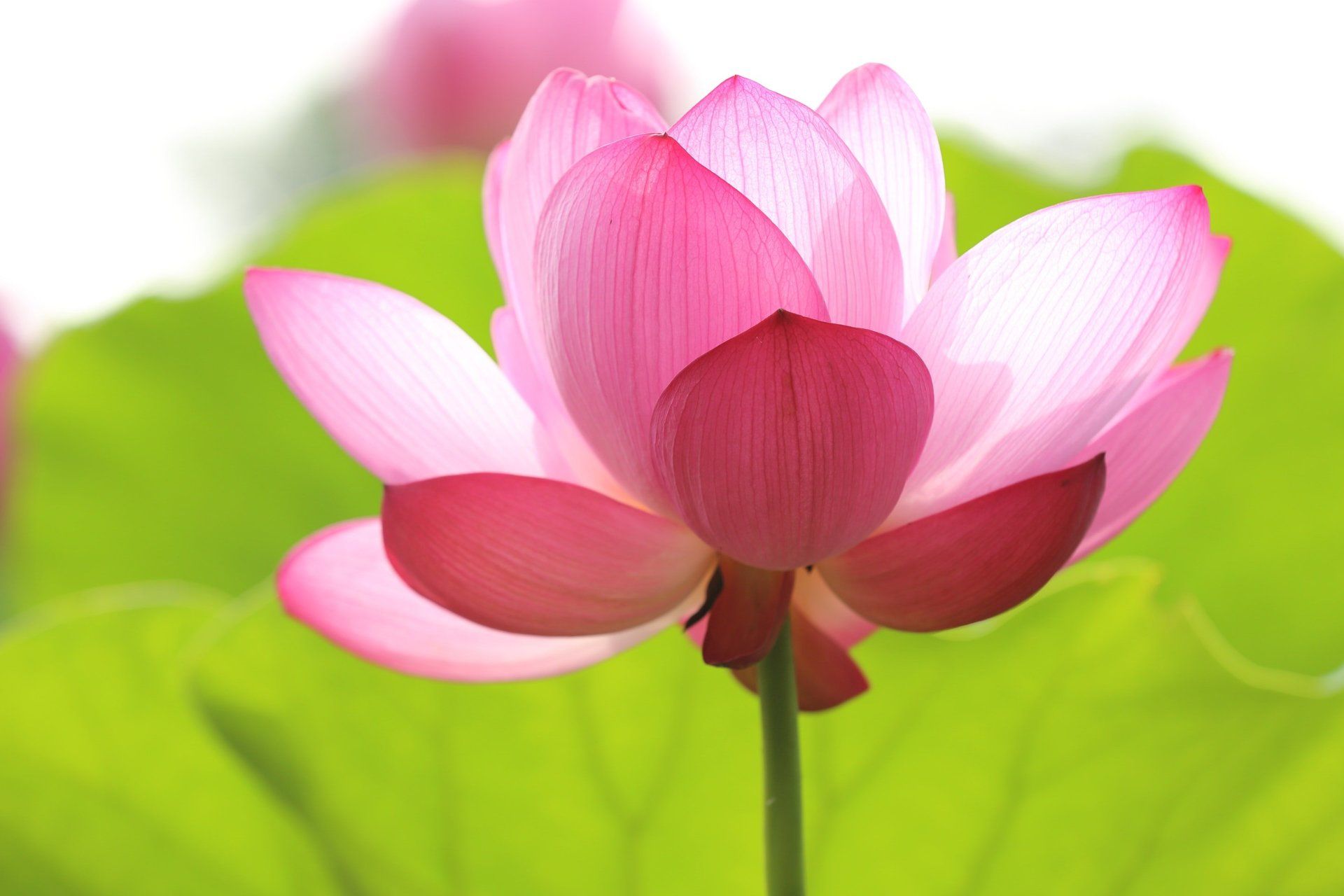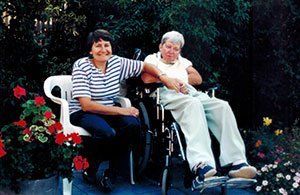Another Lesson from the Natural World
It is September. I love this time of year in the garden, pruning, dead heading, collecting seeds and picking vegetables. Then I sit on my shaded patio where dappled light filtres through tree branches, a cup of tea by my side. I plug in the water pump and my waterfall drops into the 12 foot river which then descends into the underground reservoir where the pump sits, to move the water back up.
I drink my anise tea which I buy from a middle eastern grocery store which smells of rose water – and yes I often come away with a box of Turkish delight. On my lap, a book by Pema Chödrön. One of life’s lessons I read is the art of letting go - that is accepting life's impermanence. I think in our consumer identified society we make "to possess" the most important verb in our vocabulary - or to put another way “to have and to hold.” However, this seems to create a great deal of stress for us, especially when someone else has more than we do or we don’t hold that which we think we are entitled. Pema Chödrön teaches us that letting go is better than holding on, perhaps making grief, loss and all that comes with aging easier to handle.
So here I am with the a fore mentioned book and mug of tea and acknowledging that learning the art of letting go might be good for me, when I espy movement on the grass between my veggie patch and the apricot trees that front my patio. Actually when I first built the patio, I called it a bower. To the right of these fruit trees the garden opens up to display my waterfall, rock gardens, metal birds and a blue pot with an iguana on it from Mexico. Into this space walks – as if he owned the place – a large raccoon. 4pm is a normal time for urban raccoon to be out an about. He notices me and stops. We stare at each other for quite a while before he gets bored and nonchalantly walks on, probably following his daily route. We came to an understanding. I had to let go of the notion that this garden was mine. I could only share in its bounty. I did not possess it. There was only one area over which I had control - the pump that made my waterfall flow. Maybe the raccoon acknowledged that too. I bet he and his family would love to have it flowing when they called my garden home. They could wash their hands in it. It was for this very reason that I built an underground reservoir so that when I did not need it, the water would just disappear.
The next three photos show why I must recognize that this garden is not mine.
The half-eaten eggplant is the only one my garden produced this year though I had lovely flowers. I had been waiting for this zucchini to get just a little bigger before I picked the last of the season’s production and this pink heirloom raspberry Lucama tomato was to have been picked tomorrow.
My apricot trees do not bear fruit any more. But when they did, I would look first thing in the morning and say to myself, they will be ripe for picking tomorrow. I would go out the next day and say, not ready yet, tomorrow. So it would go on till I realized that small branches on the tree were bent and broken. The truth was the raccoons had agreed the time was ripe and harvested before I came out in the morning. A few years ago, I was working in the garden at dusk when I felt eyes looking at me. I looked over to my neighbour’s yard and saw a family of raccoons looking at me, not so patiently waiting for me to vacate the premises.
I share my garden with squirrels and birds and ever so many insects and butterflies. Just a few minutes ago, I witnessed a movement in the undergrowth as a rodent emerged from my neighbour's yard and with a joyful hop skip and a jump, he headed through my garden to the next. A youthful brown body full of life. Where I was born, we never called them by name. They went by the nickname of long-tails.
Luckily, none of my visitors seems interested in my potatoes or garlic. Can I call them mine? Do I possess them? Does it matter? Maybe Pema Chödrön is rubbing off on me. I am just one part of the whole; energy like any other. All that matters is the integrity of this moment, then it must drift away to make room for the next.
Nature teaches us about impermanence. We cannot hold the seasons back. We cannot stop the trees from their change cycles. Soon I will be raking leaves. It is inevitable. Yet it is so hard for us to accept that all things in life slip through our fingers; all the things we strive for and once obtained, try to keep...a waste of time.
Today my garden bore me potatoes, beans and tomatoes to pick. In gratitude, I will feast on them and other creatures will do the same.


